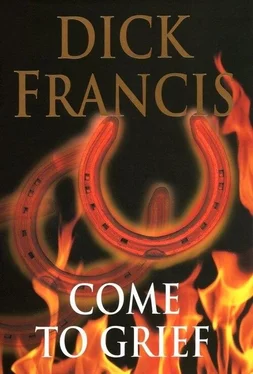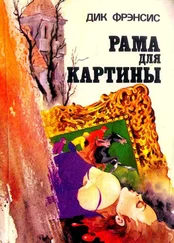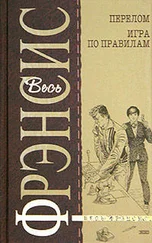Дик Фрэнсис - Come to Grief
Здесь есть возможность читать онлайн «Дик Фрэнсис - Come to Grief» весь текст электронной книги совершенно бесплатно (целиком полную версию без сокращений). В некоторых случаях можно слушать аудио, скачать через торрент в формате fb2 и присутствует краткое содержание. Город: London, Год выпуска: 1995, ISBN: 1995, Издательство: Michael Joseph, Жанр: Детектив, на английском языке. Описание произведения, (предисловие) а так же отзывы посетителей доступны на портале библиотеки ЛибКат.
- Название:Come to Grief
- Автор:
- Издательство:Michael Joseph
- Жанр:
- Год:1995
- Город:London
- ISBN:978-0-7181-3753-3
- Рейтинг книги:5 / 5. Голосов: 1
-
Избранное:Добавить в избранное
- Отзывы:
-
Ваша оценка:
- 100
- 1
- 2
- 3
- 4
- 5
Come to Grief: краткое содержание, описание и аннотация
Предлагаем к чтению аннотацию, описание, краткое содержание или предисловие (зависит от того, что написал сам автор книги «Come to Grief»). Если вы не нашли необходимую информацию о книге — напишите в комментариях, мы постараемся отыскать её.
Troubled, courageous and unwilling to admit defeat, for Sid Halley it is business as usual.
Come to Grief — читать онлайн бесплатно полную книгу (весь текст) целиком
Ниже представлен текст книги, разбитый по страницам. Система сохранения места последней прочитанной страницы, позволяет с удобством читать онлайн бесплатно книгу «Come to Grief», без необходимости каждый раз заново искать на чём Вы остановились. Поставьте закладку, и сможете в любой момент перейти на страницу, на которой закончили чтение.
Интервал:
Закладка:
‘Silence,’ I promised, ‘if…’
He asked suspiciously, ‘If what?’
‘If you could give me a list of the people whose thoroughbreds have been damaged.’
He said cautiously, ‘It’ll cost you.’
‘Done,’ I said, and we agreed both on a fee and on my giving him first chance at any story I might come up with.
He fulfilled his commitment that same afternoon by sending a motorbike courier bearing a sealed brown envelope containing photocopies of several inconspicuous small paragraphs culled from provincial papers in Liverpool, Reading, Shrewsbury, Manchester, Birmingham and York. All the papers gave the names and vague addresses of the owners of vandalized thoroughbreds, so I set off by car and visited them.
Four days later, when I returned to Linda Ferns’ house in Kent, I had heard enough about man’s inhumanity to horses to last me for life. The injuries inflicted, from the hacked-off muzzle onwards, were truly beyond comprehension but, compared with three two-year-olds, were all random and without pattern. It was the severed feet that were connected.
‘I came across his foot by the water trough in the field,’ one woman said, her eyes screwing up at the memory. ‘I couldn’t believe it. Just a foot. Tell you the truth, I brought up my breakfast. He was a really nice two-year-old colt.’ She swallowed. ‘He wasn’t standing anywhere near his foot. The off-fore, it was. He’d wandered away on three legs and he was eating grass. Just eating, as if nothing had happened. He didn’t seem to feel any pain.’
‘What did you do?’ I asked.
‘I called the vet. He came… He gave me a tranquilizer. He said I needed it more than the colt did. He looked after everything for me.’
‘Was the colt insured?’ I asked.
She took no offense at the question. I guessed it had been asked a dozen times already. She said there had been no insurance. They had bred the two-year-old themselves. They had been going to race him later in the year. They had been to Cheltenham races and had backed the winner of the Gold Cup, a great day, and the very next morning…
I asked her for the vet’s name and address, and I went to see him at his home.
‘How was the foot taken off?’ I asked.
He wrinkled his forehead. ‘I don’t rightly know. It was neat. The colt had bled very little. There was a small pool of blood on the grass about a yard away from the foot, and that was all. The colt himself let me walk right up to him. He looked calm and normal, except that his off-fore ended at the fetlock.’
‘Was it done with an axe?’
He hesitated. ‘I’d say more like a machete. Just the one cut, fast and clean. Whoever did it knew just where to aim for, unless he was simply lucky.’
‘Did you tell the police?’
‘Sure. A detective sergeant came out. He vomited, too. Then I called the knackers and put the colt down. Bloody vandals! I’d like to cut off their foot, see if they liked life with a stump.’ He remembered suddenly about my own sliced-off hand, and reddened, looking confused and embarrassed. There had been a much publicized court case about my hand. Everyone knew what had happened. I had finally stopped wincing visibly when people referred to it.
‘It’s all right,’ I said mildly.
‘I’m sorry. My big mouth…’
‘Do you think the colt’s amputation was done by a vet? By any sort of surgical expert? Was it done with a scalpel? Was the colt given a local anesthetic?’
He said, disturbed, ‘I don’t know the answers. I’d just say that whoever did it was used to handling horses. That colt was loose in the field, though wearing a head collar.’
I went to see the detective sergeant, who looked as if he might throw up again at the memory.
‘I see a lot of injured people. Dead bodies, too,’ he said, ‘but that was different. Mindless. Fair turned my stomach.’
The police had found no culprit. It had been an isolated event, not part of a pattern. The only report they’d had was of the presence of a blue Land-Rover driving away along the lane from the colt’s field; and Land-Rovers were two a penny in the countryside. Case not closed, but also not being actively investigated. The colt and his hoof had long gone to the glue factory.
‘Are there any photographs?’ I asked.
The sergeant said that the photographs were a police matter, not open to the general public.
‘I do know who you are,’ he said, not abrasively, ‘but to us you’re the general public. Sorry.’
The colt’s owner, consulted, said she had been too upset to want photographs.
I drove onwards, northwards to Lancashire, into a gale of anger. Big, blustery and impressively furious, a hard competent large-scale farmer let loose his roaring sense of injustice, yelling in my face, spraying me with spittle, jabbing the air with a rigid forefinger, pushing his chin forward in a classic animal gesture of aggression.
‘Best colt I ever owned,’ he bellowed. ‘He cost me a packet, but he was a good ’un. Breeding, conformation, the lot. And he was fast, I’ll tell you. He was going to Newmarket the next week.’ He mentioned a prestigious trainer who I knew wouldn’t have accepted rubbish. ‘A good ’un,’ the farmer repeated. ‘And then the sodding police asked if I’d killed him for the insurance. I ask you! He wasn’t insured, I told them. They said I couldn’t prove he wasn’t insured. Did you know that? Did you know you can prove something is insured, but you can’t prove it isn’t? Did you know that?’
I said I’d heard it was so.
‘I told them to bugger off. They weren’t interested in finding who took my colt’s foot off, only in proving I did it myself. They made me that angry…’ His words failed him. I’d met many people unjustly accused of setting fires, battering children, stealing and taking bribes, and by then I knew the vocal vibrations of truly outraged innocence. The angry farmer, I would have staked all on it, had not taken the foot off his own colt, and I told him so. Some of his anger abated into surprise. ‘So you believe me?’
‘I sure do.’ I nodded. ‘The point is, who knew you’d bought a fine fast colt that you had at your farm in a field?’
‘Who knew?’ He suddenly looked guilty, as if he’d already had to face an unpalatable fact. ‘I’d blown my mouth off a bit. Half the county knew. And I’d been boasting about him at Aintree, the day before the Grand National. I was at one of those sponsors’ lunch things — Topline Foods, it was — and the colt was fine that night. I saw him in the morning. And it was the next night, after the National, that he was got at.’
He had taken his own color photographs (out of distrust of the police) and he showed them to me readily.
‘The off-fore,’ he said, pointing to a close-up of the severed foot. ‘He was cut just below the fetlock. Almost through the joint. You can see the white ends of the bones.’
The photographs jolted. It didn’t help that I’d seen my own left wrist in much the same condition. I said, ‘What was your vet’s opinion?’
‘Same as mine.’
I went to see the vet. One chop, he said. Only one. No missed shots. Straight through at the leg’s most vulnerable point.
‘What weapon?’
He didn’t know.
I pressed onwards to Yorkshire, where, barely a month earlier, at the time of the York Spring Meeting, a dark-brown two-year-old colt had been deprived of his off-fore foot on a moonlit night. One chop. No insurance. Sick and angry owners. No clues.
These owners were a stiff-upper-lip couple with elderly manners and ancient immutable values who were as deeply bewildered as repelled by the level of evil that would for no clear reason destroy a thing of beauty; in this case the fluid excellence of a fleet, glossy equine princeling.
Читать дальшеИнтервал:
Закладка:
Похожие книги на «Come to Grief»
Представляем Вашему вниманию похожие книги на «Come to Grief» списком для выбора. Мы отобрали схожую по названию и смыслу литературу в надежде предоставить читателям больше вариантов отыскать новые, интересные, ещё непрочитанные произведения.
Обсуждение, отзывы о книге «Come to Grief» и просто собственные мнения читателей. Оставьте ваши комментарии, напишите, что Вы думаете о произведении, его смысле или главных героях. Укажите что конкретно понравилось, а что нет, и почему Вы так считаете.



